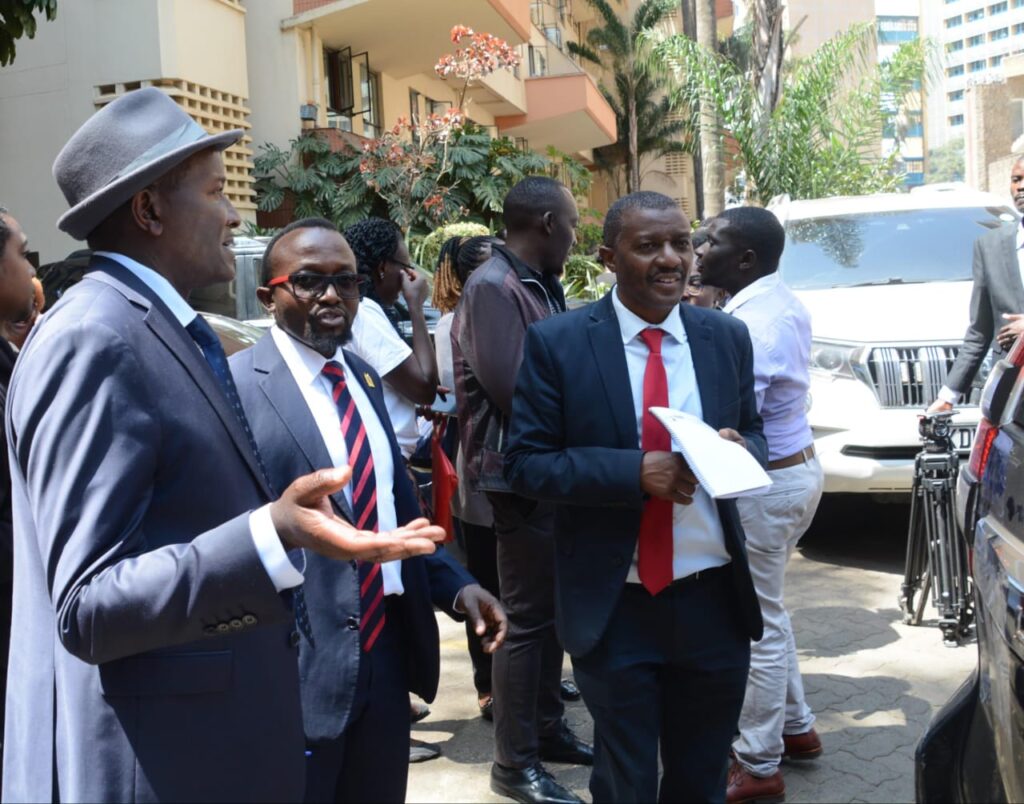
By Churchill Murunga
In the heart of Kenya’s mounting political unrest, a disturbing pattern is taking shape-one marked by bullets, batons, and blatant intimidation. Political leaders, their supporters, and even ordinary citizens are increasingly becoming targets of state-sponsored violence and harassment, as a chilling climate of fear settles across the nation.
The most recent flashpoint occurred in Murang’a County, where a Sunday rally in Kiharu turned into a scene of terror. Members of Parliament, Senators, and coalition leaders were caught in a coordinated attack-vehicles riddled with bullet holes, evidence of live rounds fired not as warning shots, but as a message of suppression. Among those targeted were Senator Methu and Hon. Jamleck Kamau. Some of the bullets, still lodged in their vehicles, serve as grim evidence of an operation designed not to scare-but to silence.
As Hon. Chair addressed a parliamentary committee on the matter, the urgency was palpable. This was not political theatre; it was a desperate plea for justice. Backed by medical reports, photographs, eyewitness testimonies, and the damaged vehicles themselves, the leaders presented a body of evidence that paints a harrowing picture: opposition politics in Kenya has become a deadly gamble.
And the Murang’a attack is just one chapter in a growing dossier of political persecution. Weeks earlier in Subukia, Nakuru County, police-under the command of OCPD Lilis Washira-launched a brutal assault on opposition supporters. Tear gas rained down. Drivers and bodyguards were beaten. Yet, none of the officers responsible have been brought to justice.
The violence extends beyond the Rift Valley. During a coalition tour of the western counties, including Kakamega and Bungoma, further attacks were reported. In Chwele, former MCA Bernard Aliangana suffered a life-altering injury-losing his eye in a brutal assault. His only crime: being part of the convoy. His case joins a growing list of political casualties in this unseen war.
The message is unmistakable. A section of rogue state machinery is being used to silence the opposition, muzzle dissent, and intimidate those bold enough to speak truth to power. Arbitrary arrests, fabricated charges, and state-enabled violence have become tools of political control. Hon. Mukunji, for instance, was arrested under terrorism charges and reportedly beaten while in custody. His experience reflects a broader strategy of suppression, masked under the guise of law enforcement.
This is not merely a security issue-it is a constitutional crisis. The democratic space that Kenyans have long fought for is shrinking, eroded by fear, force, and a weaponized police force. Once hailed as agents of reform, elements of the Kenyan police service now serve as instruments of repression, undermining the very ideals they were created to protect.
What the opposition demands is not vengeance, but accountability. A transparent investigation. Prosecution of those involved. An end to political violence and the restoration of civil liberties. These are not partisan demands-they are democratic imperatives.
The evidence is damning: vehicles pierced by bullets narrowly missed their human targets. The line between life and death has never been thinner.
In this precarious moment, Kenya stands at a historic crossroads. Will it continue to drift toward authoritarianism, where police bullets replace ballots and silence becomes state policy? Or will it return to the path of democracy, where every citizen-regardless of political affiliation-can live, move, and speak freely?
The answer lies in action, not rhetoric.
At the Independent Policing Oversight Authority (IPOA), Hon. Jamleck Kamau delivered a powerful and deeply personal statement. He described the attack on his life in Kigumo as an assassination attempt. Two bullets struck his vehicle just inches from where he was seated. “If the car hadn’t been moving,” he said, “I would have been shot in the head.”
Kamau claims to have video evidence identifying officers and bodyguards affiliated with Murang’a political figures. While he has withheld their names publicly, he vowed to submit the footage through formal channels. His statement carried a direct rebuke of the Ruto administration’s silence and inaction. “Why is this happening under President William Ruto’s watch?” Kamau asked, referencing the president’s past pledges to prevent political bloodshed.
Kamau rejected any notion that the attack was provoked and firmly stated that his team had no obligation to notify police of their presence at a church service. “I am not afraid of death,” he concluded. “If they kill me, others will carry on the fight.”
Kenya’s democratic experiment is on the line. Whether it survives depends not just on the bravery of those who resist-but on the will of a nation to demand better. Justice must not only be done, but be seen to be done-for every bullet that missed, for every voice that has been silenced, and for every citizen who refuses to live in fear.
